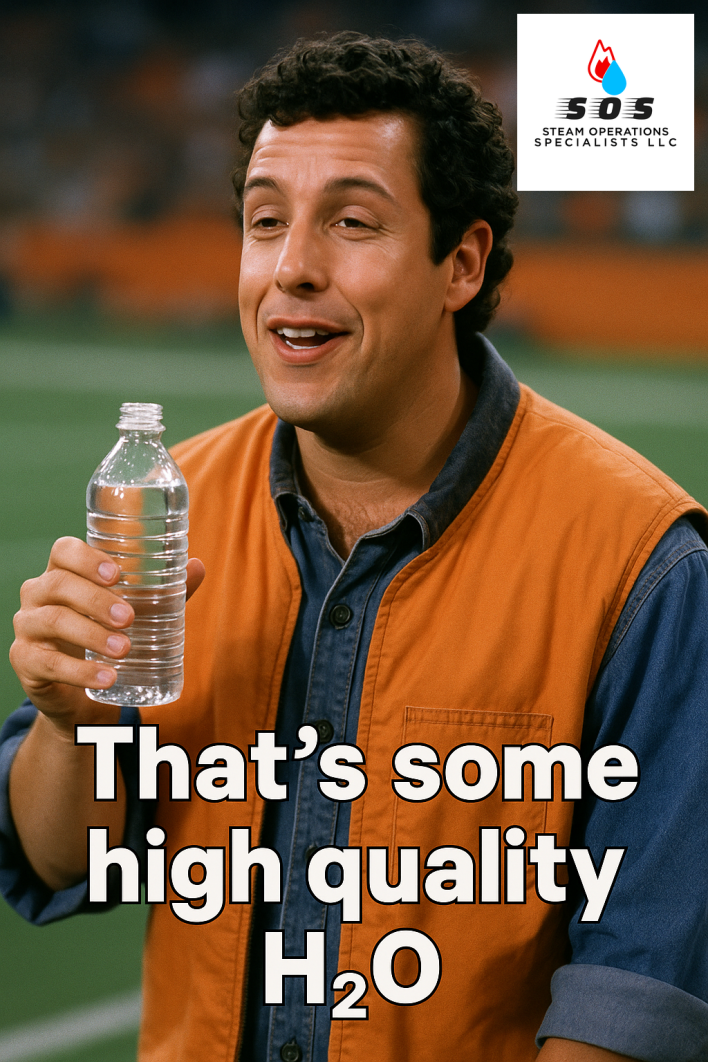
“Water Boy, High Quality H2O”
In the world of boiler operation, water quality isn’t just a background detail — it’s the lifeblood of your system’s performance and longevity. If you’ve ever wrestled with scale buildup or unexpected downtime, you know how crucial it is to treat your water right. That’s where reverse osmosis and water softeners come in, the dynamic duo that keeps your boilers running smooth and trouble-free. Let’s take a deep dive into why these technologies matter so much in the boiler industry.
Reverse Osmosis: The Ultimate Water Cleaner
Think of reverse osmosis (RO) as the gold standard in water purification. It’s like sending your feedwater through a microscopic sieve that filters out all the unwanted minerals, salts, and impurities that can wreak havoc inside your boiler. By forcing water through a special membrane, RO ensures only the cleanest water makes it into your system.
For boiler operators, this means less scale, less corrosion, and less downtime. Cleaner water means your boiler components stay in better shape, your heat transfer stays efficient, and your energy bills stay lower. RO is basically the VIP treatment your water deserves.
Water Softeners: The Scale Fighters
If RO is the purifier, water softeners are the tough guys in the ring. Hard water, loaded with calcium and magnesium, loves to form scale inside boilers, which can cause overheating and damage. Water softeners use ion exchange to swap those hardness minerals for sodium or potassium ions, softening the water before it ever reaches your boiler.
This means less scale buildup, easier maintenance, and a longer lifespan for your equipment. For boiler operators, softened water is like a smooth operator — it keeps everything flowing without the drama of mineral deposits.
Why Both Are Essential in Boiler Care
You might wonder if you can just pick one. The answer depends on your water source and boiler system. Water softeners excel at removing hardness but don’t eliminate all impurities. Reverse osmosis removes a wider range of contaminants but can be more costly and complex.
Often, using both provides the best protection: water softeners handle hardness, while reverse osmosis tackles salts and other dissolved solids. Together, they create a powerhouse defense against water-related boiler problems.
Final Thoughts for Boiler Operators
Water treatment might not be the flashiest part of your job, but it’s the foundation of reliable boiler operation. Reverse osmosis and water softeners work behind the scenes to keep your boilers efficient, safe, and long-lasting. When you prioritize high-quality H2O, you’re not just protecting equipment — you’re safeguarding your entire operation.
So here’s to the water boys and girls who keep the H2O high quality — your boilers will thank you, and your workdays will be a whole lot smoother. Keep those systems hydrated and happy and remember “You can do it!”
Ready to keep your operations running smoothly, no matter what? Contact Steam Operations Specialists today and discover the peace of mind that comes with the industry’s best boiler operations service.
.jpg?token=6445a83d8d25ab95bafc9ca7f56de5ee)